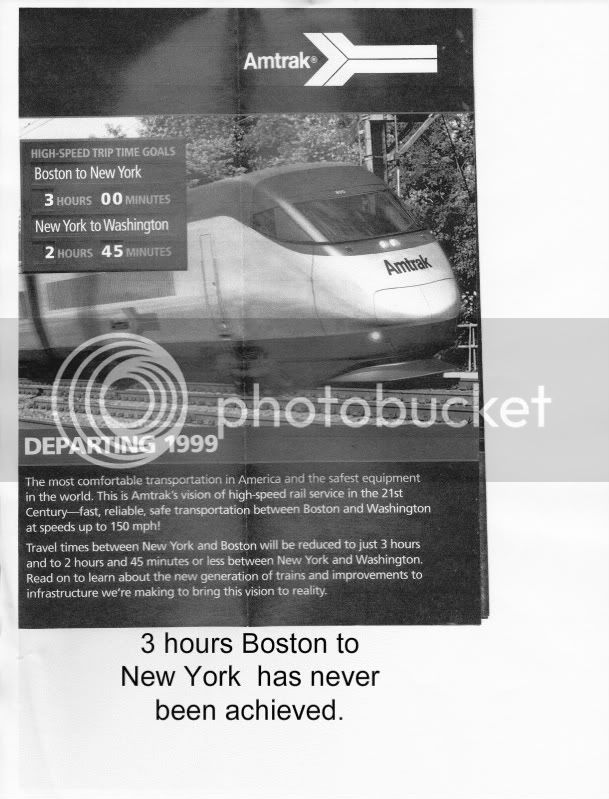G
Guest
Guest
Not clear? Turboliners a success? Where are they then? I don't know what you consider a failure but when high speed trains don't go high speed they are failures. Amtrak promised three hour service for Boston to New York in 1999. It didn't/hasn't happened. That is what is called FAILURE. However given your failure to comprehend these points I agree with you in that further conversation with you would be futile.Not really. But let's let it be. The fact is that trains have not been sped up as much as was claimed. But to state from that that Acelas have been a complete failure is not completely tenable either. But as I said, since we apparently don;t even agree on what constitutes success or failure, I don't think a fruitful conversation is possible. Afterall I don;t even believe that the Turboliners failed in any way shape or form. It may be that some have unrealistic expectations and are frustrated when those are not met.





